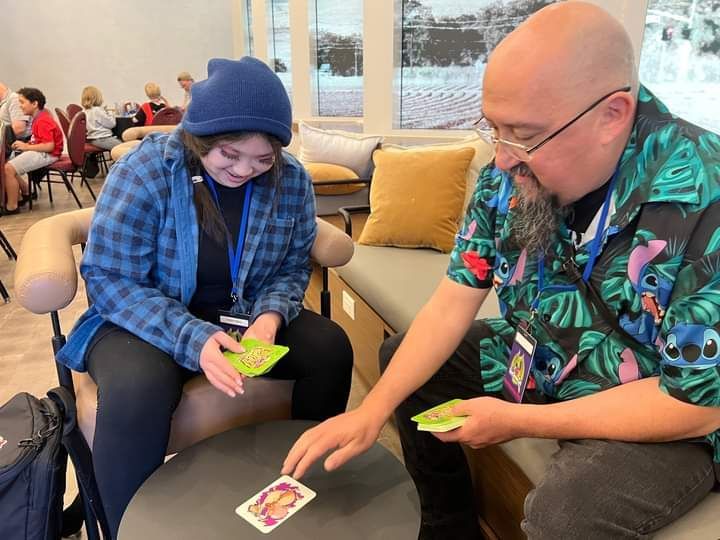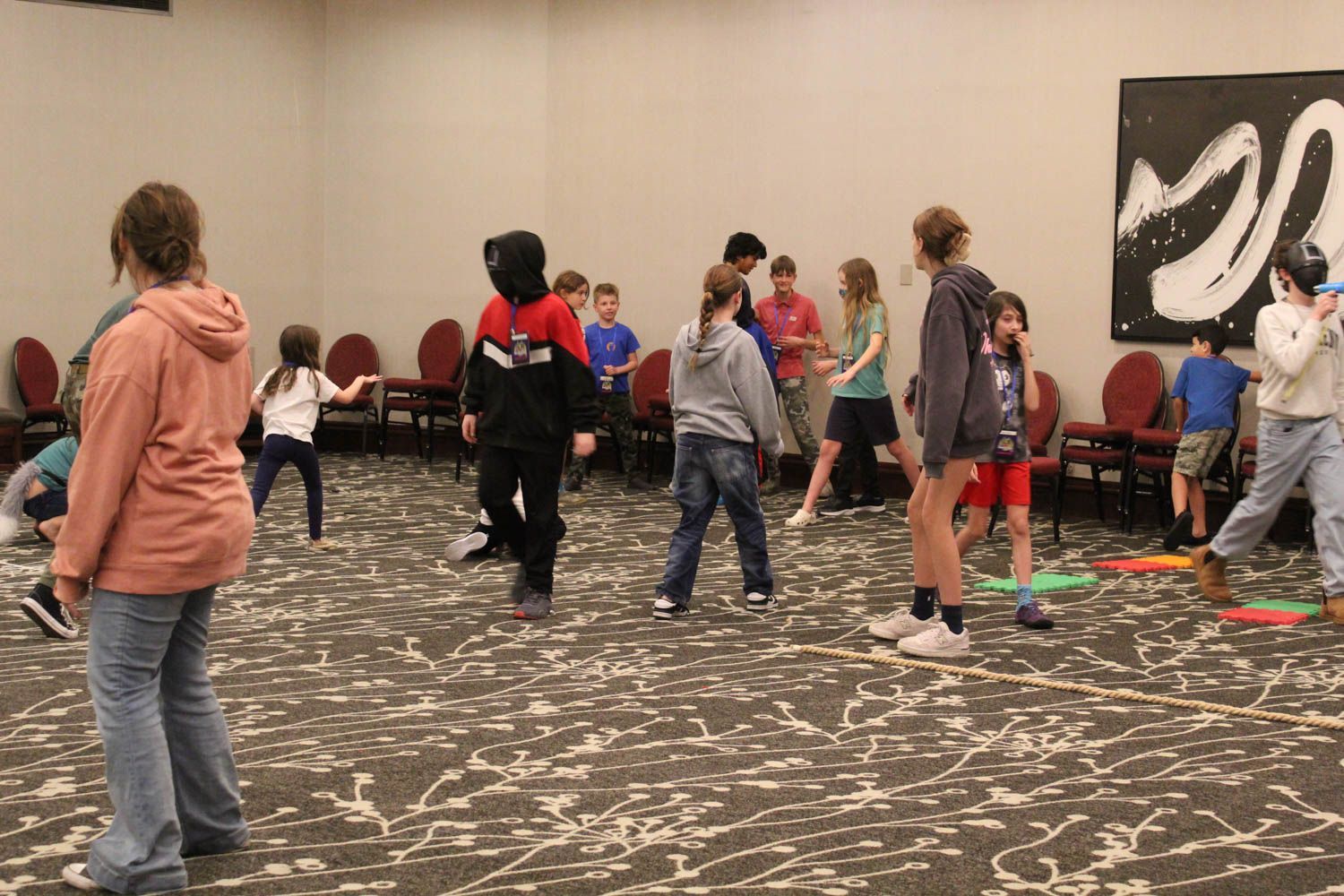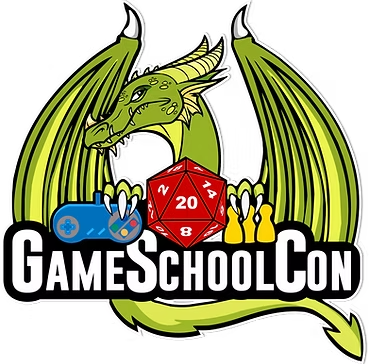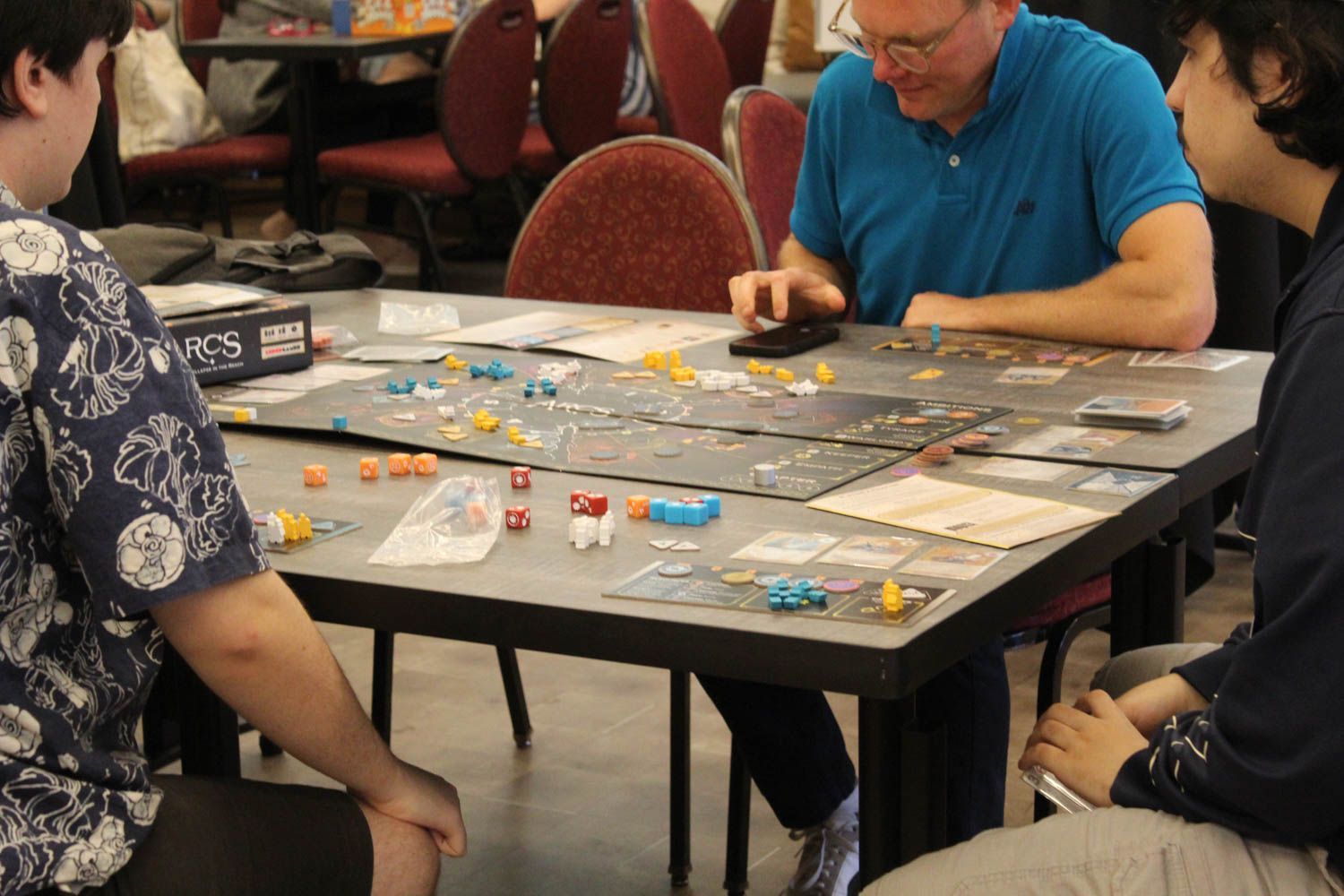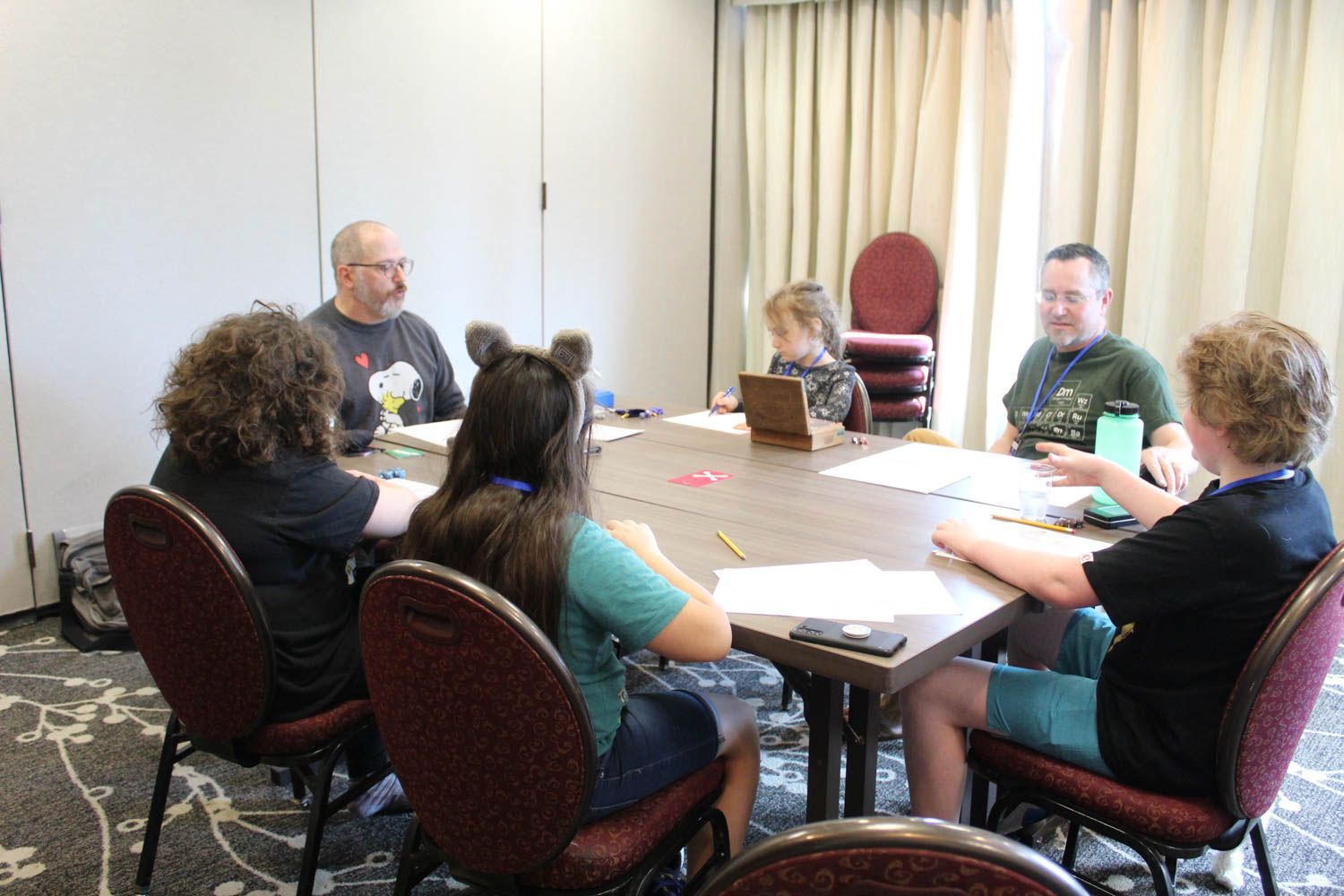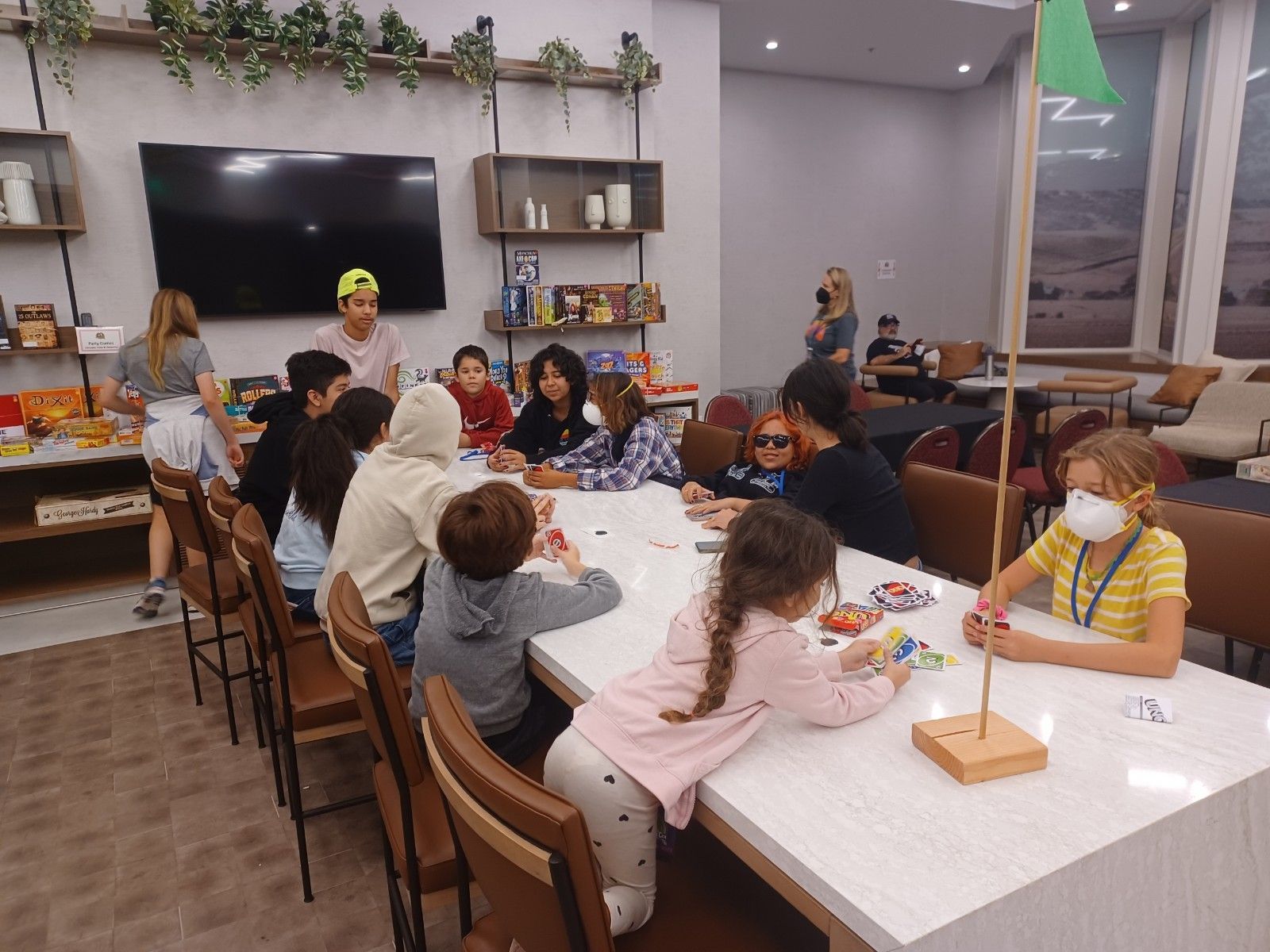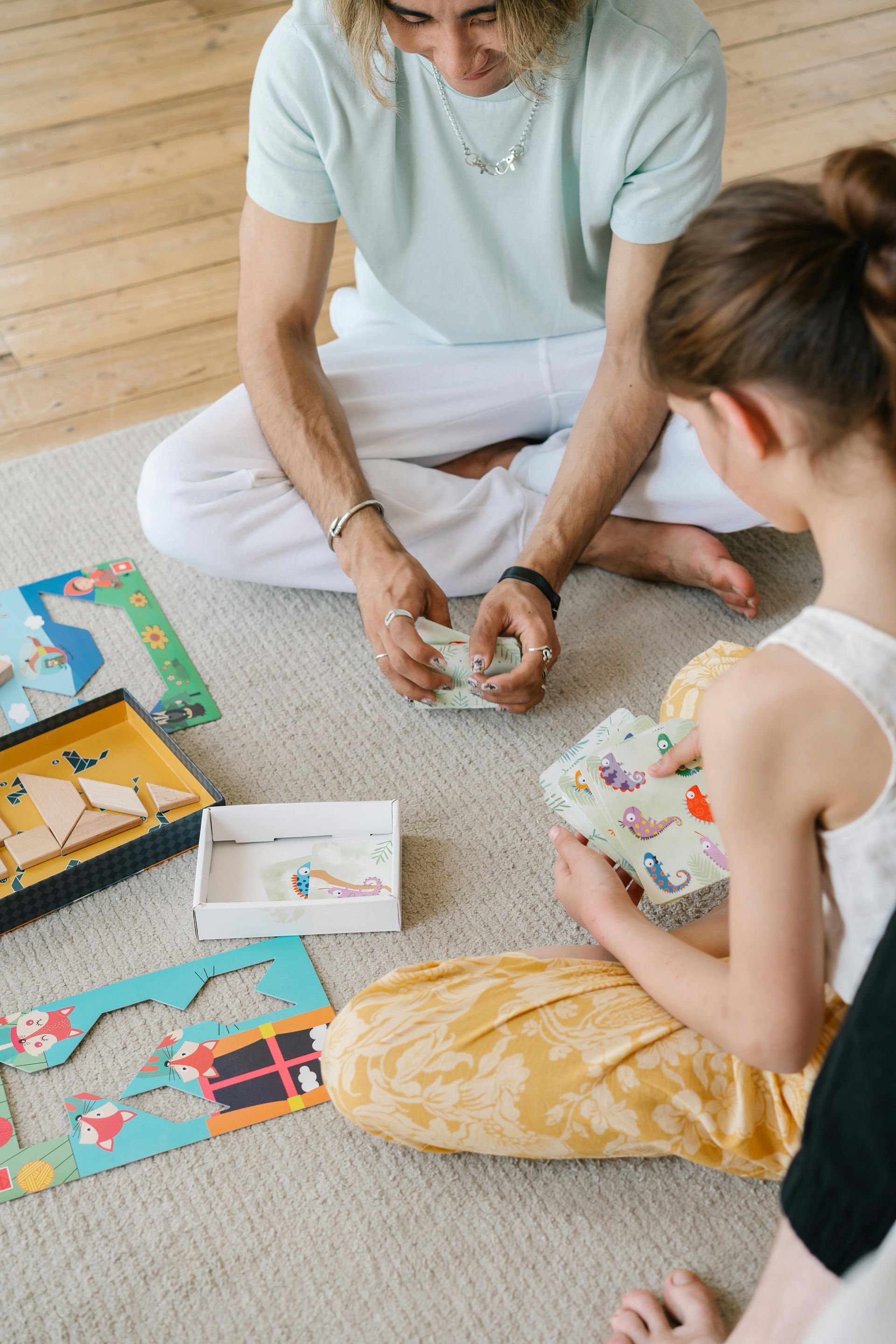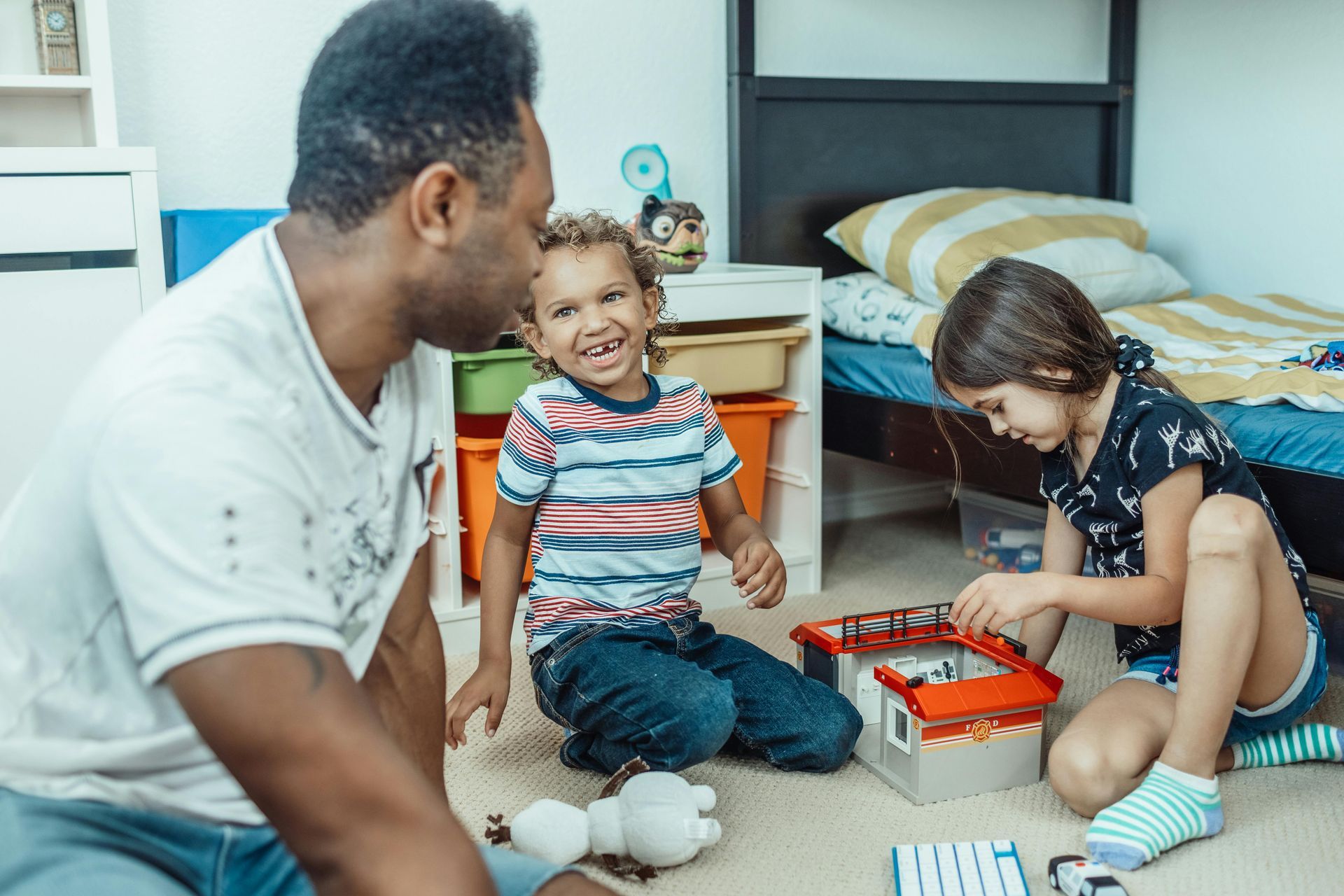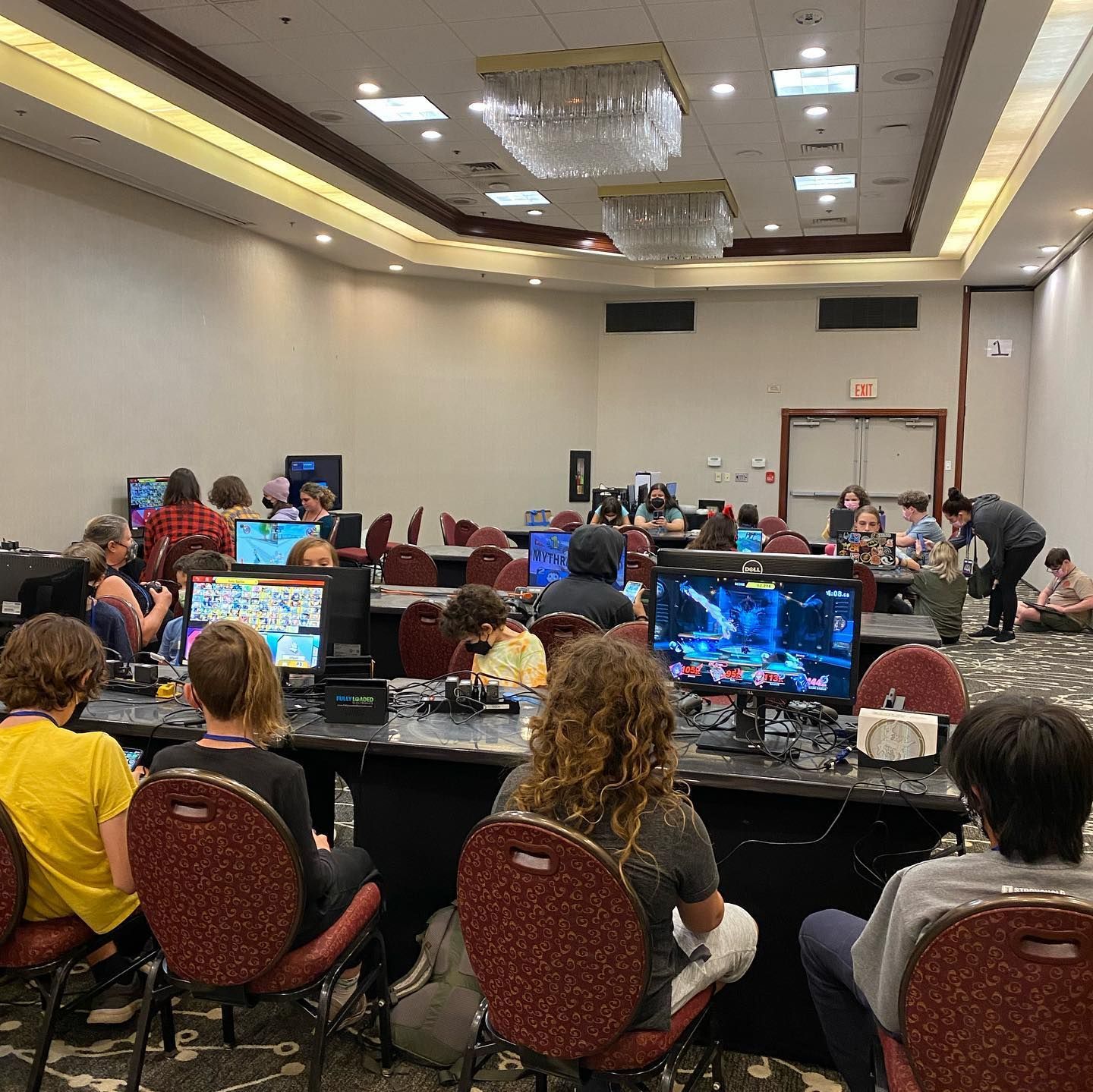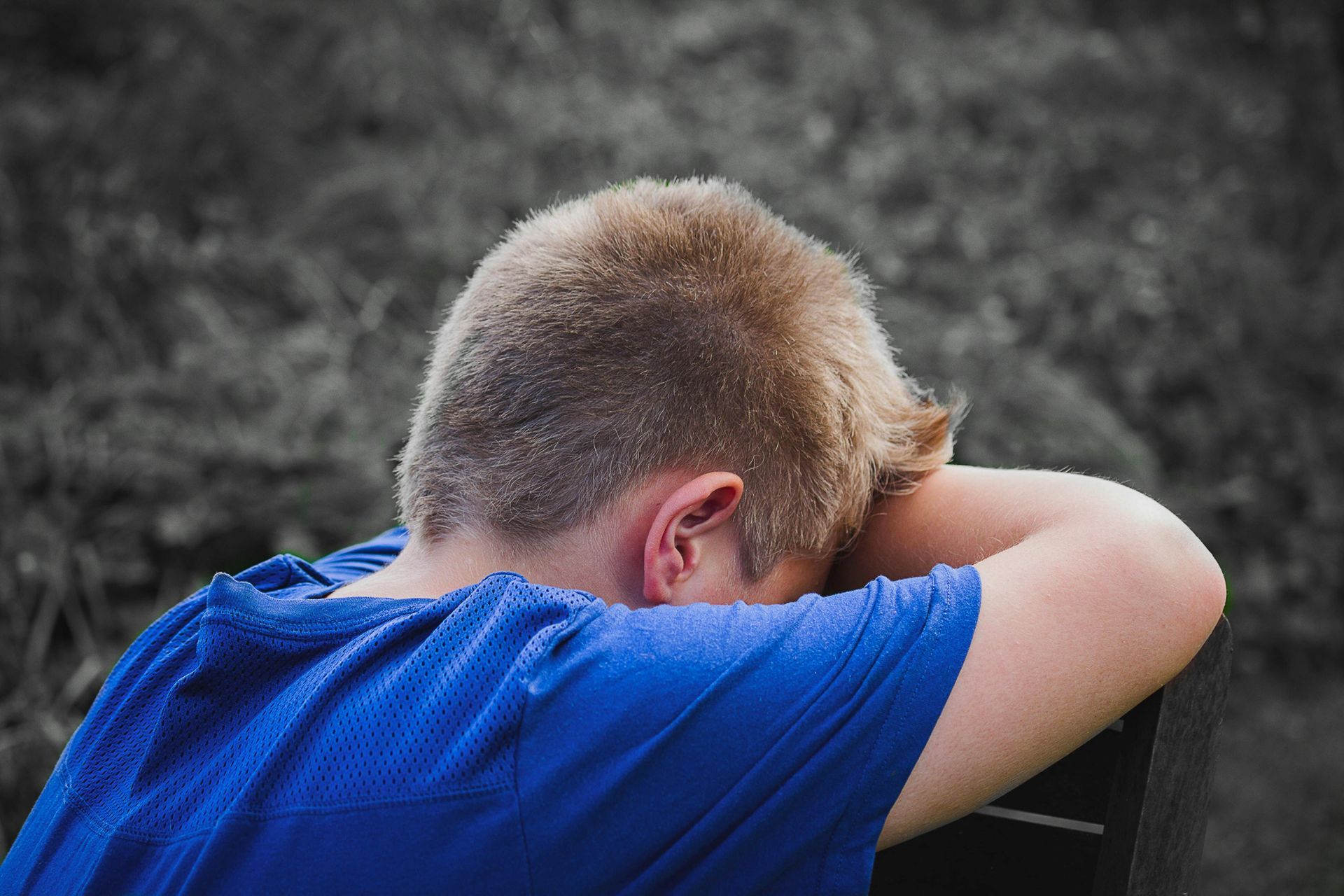February 19-22, 2026
Why Roleplaying Games (Like D&D) Are Amazing for Kids
Erika Davis-Pitre • July 4, 2025
Imagine a game where your child gets to be the hero—facing dragons, solving mysteries, or exploring ancient ruins. Now imagine that same game also builds reading skills, boosts confidence, teaches teamwork, and encourages creative problem-solving.
That’s exactly what tabletop roleplaying games (RPGs) like Dungeons & Dragons (D&D) offer. At GameSchoolCon, roleplaying games are one of the most popular and transformative experiences for kids—and it’s easy to see why.
Whether your child is shy, imaginative, analytical, or all of the above, RPGs offer an incredible blend of learning and fun.
What Are Roleplaying Games?
Roleplaying games are interactive storytelling experiences where each player takes on the role of a character in a shared adventure. A Game Master (GM) or Dungeon Master (DM) guides the story, presents challenges, and narrates the world, while players decide how their characters respond.
Unlike board games with a fixed outcome, RPGs are open-ended. Players might:
- Talk their way out of trouble with goblins
- Investigate a haunted library
- Build alliances with unlikely allies
- Solve logic puzzles to unlock a treasure
The result is a story created in real time by the group—part game, part theater, and 100% imaginative play.
Why RPGs Are So Good for Kids
Roleplaying games are more than fun. They're powerful tools for social-emotional learning, creative development, and even academic growth. Here's how:
They Build Communication Skills
Players must describe their actions, make decisions aloud, and listen to others. For kids who struggle with speaking up, this is a gentle, motivating way to practice verbal expression and active listening.
They Support Literacy and Language Development
Many RPGs involve reading character sheets, spells, story prompts, and rulebooks. Players expand their vocabulary, improve reading comprehension, and learn storytelling techniques—often without realizing they’re doing “schoolwork.”
They Teach Problem-Solving and Critical Thinking
Every encounter is a puzzle. Should you fight or negotiate? Sneak or solve a riddle? Kids learn to weigh options, plan ahead, and think creatively—skills that transfer to real-life situations.
They Boost Confidence and Self-Expression
Shy kids can try out bold personas. Outgoing kids can explore empathy by roleplaying someone totally different. Players learn that their ideas matter, their voice is heard, and taking a chance can lead to amazing outcomes.
They Encourage Teamwork and Cooperation
Success in RPGs depends on collaboration. No one wins or loses alone. Players must work together, consider others’ ideas, and share the spotlight—a great way to build emotional intelligence and conflict resolution skills.
Why Parents and Educators Love RPGs, Too
Tabletop RPGs offer a screen-free, social, and incredibly engaging activity for kids and teens. Parents often report that their kids:
- Start writing their own stories or game campaigns
- Become more confident readers and speakers
- Look forward to social time with peers
- Show improved patience, focus, and flexibility
Educators and librarians are increasingly using RPGs in classrooms and clubs to teach everything from history to math to storytelling. They're that adaptable—and that effective.
What RPGs Look Like at GameSchoolCon
At GameSchoolCon, we offer a wide range of RPG sessions for all ages, including:
- Intro to RPGs for first-time players and young kids
- One-shot adventures that take 60–90 minutes
- Longer sessions for experienced teens and adults
- Non-combat games focused on puzzles, storytelling, or relationships
- Kid-led games where young players get to be the Dungeon Master
Sessions are run by kind, patient facilitators who love introducing new players to the magic of RPGs. No prior experience is necessary—and we welcome neurodivergent players, quiet kids, and big imaginations.
Recommended Roleplaying Games for Kids
Not all RPGs are epic dungeon crawls. There are tons of kid-friendly systems designed to be easy, flexible, and fun.
Some favorites include:
- No Thank You, Evil! – A whimsical game perfect for ages 5+
- Amazing Tales – Great for parent-child one-on-one adventures
- Kids on Bikes – A Stranger Things-style story of mystery and friendship
- Honey Heist – Hilarious and simple; you’re bears stealing honey!
- Dungeons & Dragons (5e) – Best for ages 10+, with simplified intro rules
Many of these will be available to play at GameSchoolCon!
RPGs Help Kids Feel Seen and Heard
One of the most beautiful things about RPGs is how they invite kids to bring their whole selves to the table. They get to make choices, face consequences, tell stories, and collaborate, with the support of peers and guides who value their voice.
For kids who’ve felt awkward, anxious, or left out, this can be life-changing.
We’ve seen:
- Autistic kids find joy in structured roleplay
- Shy kids beam after telling a story in front of the group
- Siblings bond over shared adventures
- Teens build real friendships through character arcs and laughter
The confidence, empathy, and creativity sparked in these games ripple far beyond the session.
Join the Adventure at GameSchoolCon 2026
February 19–22, 2026
Sonesta Irvine – Orange County Airport Hotel, CA
Whether you’ve played before or are brand new, GameSchoolCon is the perfect place to discover the magic of RPGs in a family-friendly, welcoming environment.
Register now to save your seat at the table—and let the adventure begin.
FAQ: Roleplaying Games and Kids
What age can kids start playing Dungeons & Dragons or other RPGs?
Kids as young as 5 or 6 can start playing simplified roleplaying games like No Thank You, Evil! or Amazing Tales. For Dungeons & Dragons 5e, ages 10+ is a good starting point with adult or teen guidance. At GameSchoolCon, we offer RPG sessions for all experience levels and ages.
Do my kids need to know the rules before joining a game at GameSchoolCon?
Not at all! Our RPG Sessions are beginner-friendly and led by experienced game masters who love introducing new players to roleplaying. We offer short "one-shots" and intro games that are perfect for first-timers.
What if my child is shy or struggles socially?
RPGs are fantastic for shy or anxious kids because they provide structure and purpose. Players speak “in character,” which often feels safer than traditional social interaction. Many parents tell us that RPGs helped their kids come out of their shell and build real friendships.
Are RPGs educational?
Yes! Roleplaying games support reading, writing, math, teamwork, storytelling, problem-solving, and emotional intelligence. They’re often used in classrooms and homeschool settings to build core skills in a highly engaging way. Learn more about the educational value of games on our What Is Gameschooling? page.
Is Dungeons & Dragons appropriate for kids?
When tailored for younger players, absolutely. Game masters can adjust the story tone, content, and complexity to suit your child’s age and comfort level. At GameSchoolCon, our games are family-friendly and always run in a supportive, inclusive environment.
Do I need to bring anything for my child to play RPGs at GameSchoolCon?
Nope! We provide character sheets, dice, pencils, and everything else you’ll need. If your child wants to bring their own dice or character, that’s welcome—but not required. You can browse our FAQ Page for more tips on preparing for the event.
